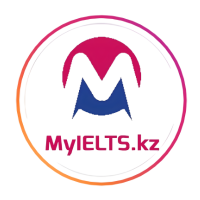Учить историю только своей страны или учить еще и историю всемирную? Скукота, конечно, но не для всех. Если такая тема попадется на IELTS, то лучше быть к ней готовым. В августе 2017 года кое-кому пришлось писать такое эссе. Свой вариант этой работы я написал довольно быстро! Читаем!
Совет:
Читайте как можно больше тем эссе и примеров к ним, чтобы обогащать свой язык новыми грамматическими и лексическими конструкциями, пополнять свой запас аргументов и узнавать что-то новое из разных сфер жизни.
Эссе ниже я написал за 25 минут — это моя оригинальная работа, а не скопированное из Интернета эссе.
Тема эссе Writing Task 2 (была на официальных экзаменах IELTS в августе 2017 года):
It is more important for school children to learn about local history than the world history.
To what extent do you agree or disagree?
План эссе:
Introduction – перефразируем тему и покажем свое мнение (мое мнение — оба вида истории важны)
Essay body 1 –
Topic sentence: Местная история важна:
Examples:
(1) она помогает школьнику понять истоки развития своей страны
(2) она помогает школьнику узнать больше о том, как прошлое повлияло на настоящее и будет влиять на будущее.
Essay body 2 –
Topic sentence: Всемирная история не менее важна в школьной программе:
Examples:
(1) всемирные исторические процессы влияли на развитие отдельных стран, в том числе и этой конкретной страны (пример — мировые войны)
(2) всемирная история расширяет кругозор и делает человека компетентным в вопросах не только истории, но и географии, политологии и всемирной культуры (эти знания помогают в эру глобализации)
Conclusion –
Учить нужно оба вида истории, потому что они взаимосвязаны и дают представление о том, насколько наш мир был, есть и будет большим сообществом, где страны влияли друг на друга в прошлом и влияют в настоящем.
Готовое эссе:
Learning various types of history by school children may be a subject of debate among educators. Some people say that local history should prevail over the world history. I do not support this opinion as I believe that both types of history should receive equal attention in school education for a number of reasons.
Local history should be a compulsory part of educational process for youngsters in order to link the past with the future of their nation. This is because through learning about the past of their country school children understand the origin of their national identity and culture. If they appreciate their historic heritage, they will be able to pass it over to future generations. Moreover, local history educates people about how the past has brought their nation to its present and what steps are required to ensure a better future. For this, students should understand key political, social and even geographic factors from past centuries, which have shaped the current strengths and weaknesses of their country.
On the other hand, the world history is just as important as local history as it improves the understanding of a country’s place in the world. It is obvious that international historic events have influenced countries in many significant ways, and knowing these concepts greatly helps in creating the mental picture of today’s world. For instance, learning about the consequences of the two World Wars reveals today’s global political scene and how these historic events affected each country, directly or indirectly involved in them. In addition, the world history can expand a school child’s horizons and make them familiar not only in history, but also in geography, political science and worldwide culture. This type of history, therefore, develops important cross-cultural competences which are highly valued in today’s globalized world.
In conclusion, I stick to the point that both types of history should be taught in school as they are tightly interconnected and provide a better past, present and future picture of the present day. Understanding that the world is a large community where countrieshave had mutual influence is one of the primary knowledge pieces required for an educated person living in the era of globalization.
364 words
Кстати, вы можете задать свой вопрос касательно IELTS, я постараюсь ответить! Напишите на admin
myielts.kz

